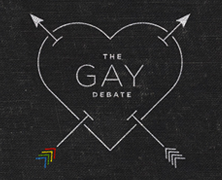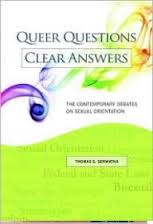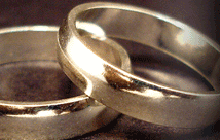The reader should note that up to this point, no mention has been made of religion whatsoever. The central argument made by social conservatives in public policy debates over homosexuality, that homosexual conduct is harmful to those who engage in it and to society at large, does not rest on any particular religious teaching at all.
Of course, it is also true that many people of deep religious conviction – including those who hold to the traditional teachings of the three major monotheistic religions, Judaism, Christianity, and Islam – believe that engaging in homosexual conduct is contrary to the will of God (i.e., is a “sin”). Some supporters of the pro-homosexual political agenda make assumptions that the only reason for anyone to oppose that agenda is religious belief; that to bring religious belief to bear on public policy issues violates the “separation of church and state;” and that therefore opposition to their agenda is not only wrong on the merits, but is somehow illegitimate, and should be stifled, discounted, or ignored.
Such assumptions represent a misunderstanding of homosexuality, religion, and our political system alike. This paper has already demonstrated that religion is not the only basis for opposing the forced affirmation of homosexual relationships. However, it is equally misguided to argue that the “separation of church and state” forbids bringing religious values to bear on public policy issues. Indeed, American history shows the absurdity of such a claim, for great social and political movements such as the abolition of slavery and the civil rights movement rested in large part on explicitly religious values.
However, some supporters of the homosexual political agenda are now going even beyond the argument they once used, that “you are free to believe what you want, just not to impose it on the law.” Instead, they are beginning to attack religious teachings about homosexuality themselves, arguing that such teachings “harm gays and lesbians.”[i]
Consider the fate of NFL great and sports commentator Craig James, a Christian who lost his career for his views on homosexuality that he expressed, not on camera during his job, but rather in running for public office.
However, the attacks upon conservative religious teachings reflect the same confusion between the two paradigms of homosexuality that have already been described. Some people assume that religious teachings against homosexuality amount to a bigoted view that “gay people are inferior.” Such a conclusion only makes sense, however, when viewed through the lens of the “gay identity” paradigm. Religions that teach against homosexuality do not view it through that paradigm. Just as described above in the secular context, people from conservative religions do not view homosexuality as an “identity,” but as a behavior.
The Bible and Christianity (which shape the religious beliefs of a majority of Americans) do not teach that “gay people are inferior.” They teach that homosexual conduct is contrary to the will of God, and thus morally wrong or “sinful.” For Christians, to call someone a “sinner” is not to demean or denigrate that person in comparison to others, because all human beings are sinners. Christianity teaches that all of us need to repent of our sins, and that all of us are forgiven our sins only by the grace of God, and not because of any merit on our own part.
Above it was noted that social conservatives do not identify anyone as “gay.” Rather, they would identify them as human beings, and grieve over a culture that describes the inherent identity of a person on the basis of their sexuality alone. But in the biblical context, this has even more meaning, for to be human is to be created in the image of God. This is not a lesser thing, but a far higher and better thing, than to be ostensibly “born gay.”
[i] In Perry v. Schwarzenegger (op. cit.) one of Judge Walker’s “findings of fact” was, “Religious beliefs that gay and lesbian relationships are sinful or inferior to heterosexual relationships harm gays and lesbians.”









